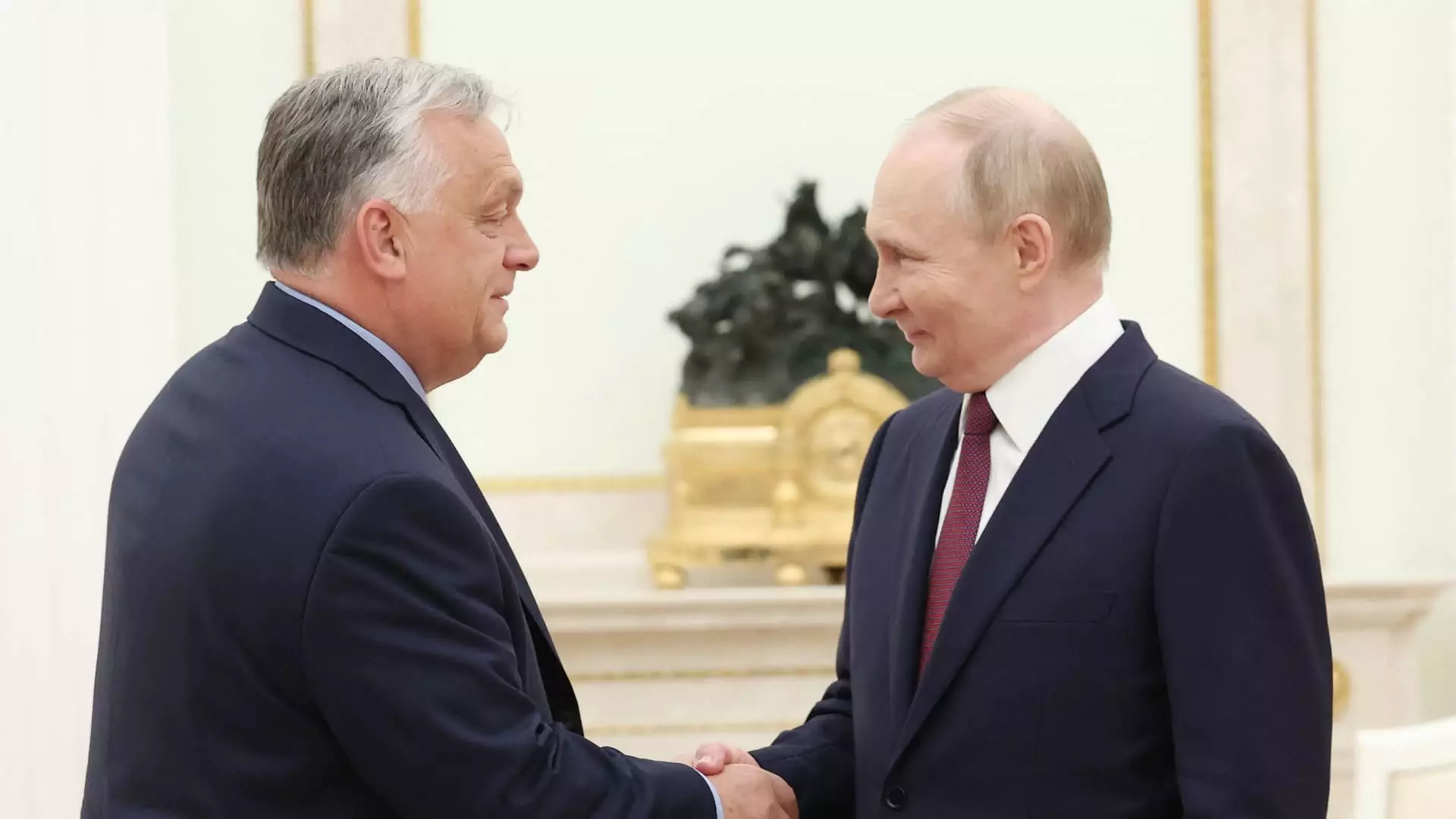Hungarian Prime Minister Viktor Orban recently made headlines for his visit to Moscow to meet with Russian leader Vladimir Putin. This move has sparked criticism from the European Union, especially considering Hungary’s role as the EU’s current rotating presidency. Despite opposition from the EU and NATO, Orban’s administration has maintained working relations with Russia, even as other Western countries have severed ties with the nation following its invasion of Ukraine in February 2022.
Orban has positioned himself as a “peacemaker,” advocating for dialogue with both Russia and Ukraine. During his visit to Moscow, Orban expressed Hungary’s intentions to play a key role in facilitating peace talks between the warring nations. This approach has raised eyebrows in Brussels, with European officials questioning Orban’s authority to represent the EU in such delicate negotiations.
European Union chief diplomat Josep Borrell emphasized that Orban’s trip to Moscow was a bilateral engagement between Hungary and Russia, and did not reflect the position of the European bloc. European Commission President Ursula von der Leyen echoed this sentiment, warning that appeasement towards Putin would not lead to a lasting peace in Ukraine. The EU’s stance on Hungary’s presidency is clear: the role entails chairing meetings and ensuring the continuity of the EU’s work, rather than pursuing unilateral diplomatic initiatives.
Orban’s visit to Moscow also raised concerns in Ukraine, where officials stated that the trip was made without their knowledge or coordination. The Ukrainian Foreign Ministry emphasized the importance of involving Ukraine in any discussions related to its future and called for adherence to the principle of “no agreements on Ukraine without Ukraine.” President Zelenskyy’s peace formula remains the preferred path to peace in the eyes of Ukrainian officials, who view Orban’s actions with skepticism.
Despite several peace initiatives being put forward by various parties, including Zelenskyy, China, and Putin, progress towards a resolution remains elusive. Orban’s efforts to facilitate dialogue between Russia and Ukraine have yet to yield tangible results, with both sides remaining entrenched in their positions. The complexities of the conflict in Ukraine necessitate a multi-faceted approach that prioritizes inclusivity, transparency, and respect for the sovereignty of all involved parties.
Viktor Orban’s peace mission has ignited controversy and debate within the European Union and beyond. While his intentions to broker peace between Russia and Ukraine are commendable, his unilateral actions have raised questions about his mandate and the efficacy of his approach. As the situation in Ukraine continues to evolve, it is imperative that all parties involved adhere to international norms and principles in order to achieve a just and lasting peace in the region.


Leave a Reply